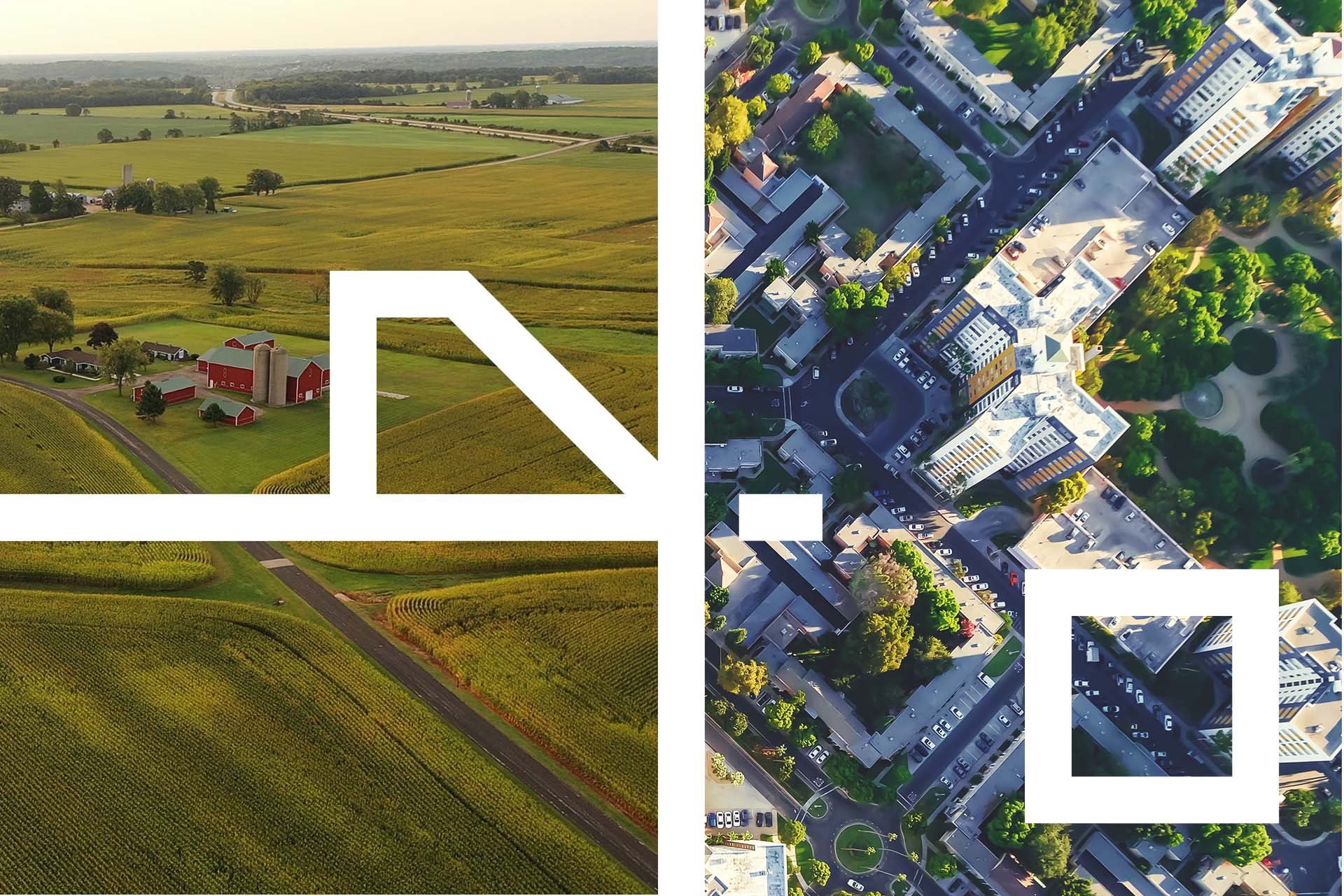
We are reader-supported. When you buy through links on our site, we may earn an affiliate commission.
Deciding where you’re going to live is a big deal. Moving to a new place is expensive and time-consuming, and then there’s the added pressure of expecting to stay where you move for at least a few years. Before you relocate to a new place, you want to make sure that you’ll love where you live. It’s harder to do that when visiting the new place isn’t possible, especially when you’ve never lived in an area like it before. Living in a rural town vs. a city provide completely different lifestyles. You may have experience in one or the other, but what if you want to switch? Read on to learn about how city life and rural life compare and which one may be a better fit for you.
1. Different Career Opportunities
Starting or changing your career are some of the biggest reasons why people move to a new location. The career opportunities in the area you’re moving to may be one of the most important factors you consider before signing a lease, which is why you should look into what jobs are available in cities and rural areas.
When you think about a rural town, you may picture farmlands and miles between homes. Although that isn’t always true, you’ll definitely have a limited job field compared to a city. The most common jobs to find in rural areas are roles like teachers, doctors and nurses, as well as local government employees.
If you’re in a specialized role or want something in a field like the tech industry, you’ll have an easier time finding a job in a growing city. Because more people live in cities, they experience more innovation and faster job market growth.
2. Cost of Living in a Rural Town vs. City
It’s a guarantee that if you move from a rural area to a city, you’ll have an increased cost of living. Rent is where city residents spend the most money, especially if they live closer to the downtown area. Compared to living in a nearby suburb, it costs New York City residents an extra $71,000 each year to live in town.
Taxes are also something to consider in relation to the cost of living. Rural areas tend to pay fewer taxes because the towns require less money for upkeep. Cities are constantly growing, so you can expect to have occasional tax rate hikes on various things like food, gas and income.
3. Community Culture and Vibe
Because different types of people will have a preference over where they live, cities and rural areas are known to have different types of cultures. Cities are home to people from all over the world, so you can find things like cultural celebrations and different types of restaurants that you may have never experienced before.
On the other hand, rural communities have a quiet, laid back vibe that cities often lack. After a stressful day at work, rural residents drive home without sitting in traffic and live in a peaceful setting away from sirens and crowds. It may be why people in rural communities suffer from fewer psychiatric disorders than city residents.
4. Health Differences in a Rural Town vs. City
There are a few main differences that will impact your health if you live in a city or rural area. Cities have more resources like gyms and specialized healthcare facilities that people can take advantage of. People also tend to walk more in cities, since the roads are packed.
However, crowded cities have worse air pollution, which can trigger chronic illnesses like asthma. The higher number of residents living closer together also means that basic sanitation is harder to maintain, like clean streets and water.
Rural areas make it easier to avoid bacteria and illnesses piling up, but there are other health challenges that people face. Towns that are less populated often don’t have many gyms and doctors. There are also fewer stores to shop at, which decreases access to a variety of grocery stores and markets.
5. Growing Family Benefits
Families also have different concerns when choosing to live in a rural town vs. a city. Studies have shown that the majority of crimes happen in large cities, which can sometimes create less safe environments for kids to grow up. Still, kids enjoy things in bigger cities like museums, more schools to choose from and more socialize opportunities like clubs. For many parents, this may outweigh the potential danger of living in areas with higher crime rates.
Children in rural areas face other challenges. They’ll have fewer clubs and activities to participate in, given the decreased number of residents in rural areas. They may also be stuck in a school zone that isn’t academically challenging.
At the same time, rural areas provide more space to play and a safer environment to be in. Children can bike down the street to their favorite park without worrying about getting caught up in traffic. They may also have a brighter future, given that studies found rural children making more money as adults than people who grew up in cities.
There’s no right answer when it comes to settling down with a family. There’s a lot of nuance in city life vs. rural life pros and cons, so don’t let one factor make or break a location for you. A holistic view will help you decided what matters most to you and your children.
Rank Living in a Rural Town vs. City
These are all important factors to consider before you move to a new town or city. Rank them by what’s most important to you and then add in anything else you want from where you live. The list will help you narrow down which places are best for you to choose from so you’re happy where you end up living.









